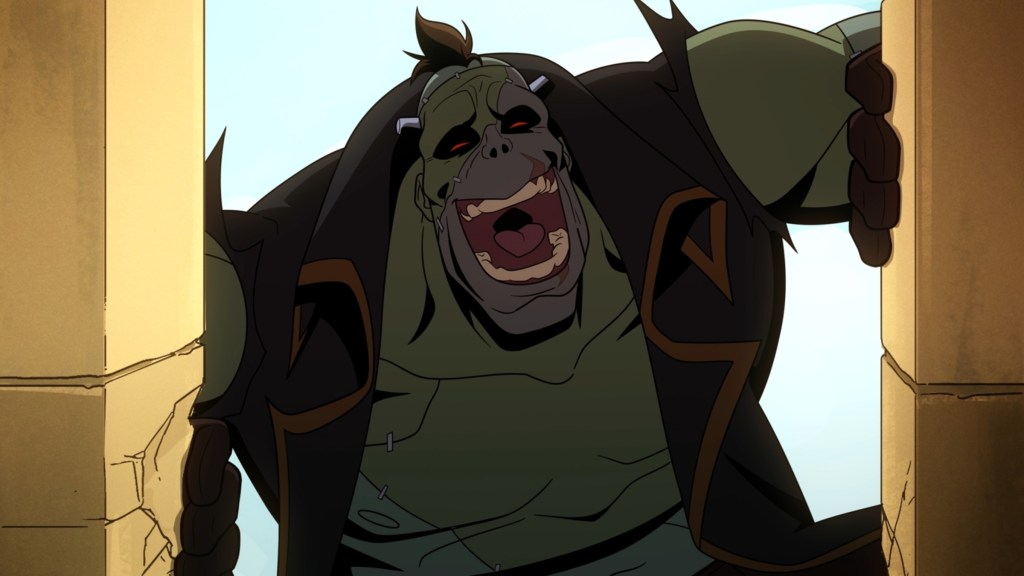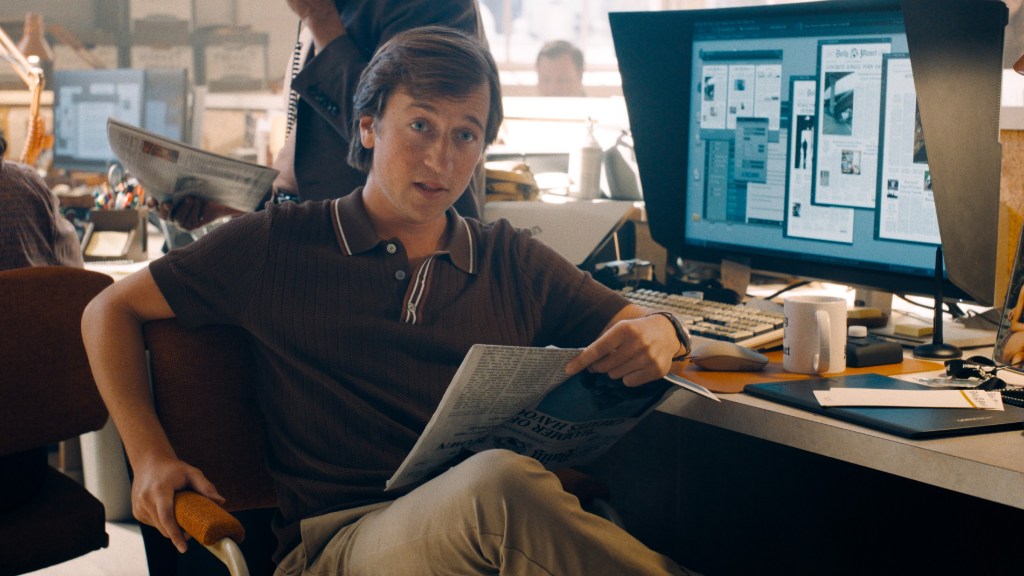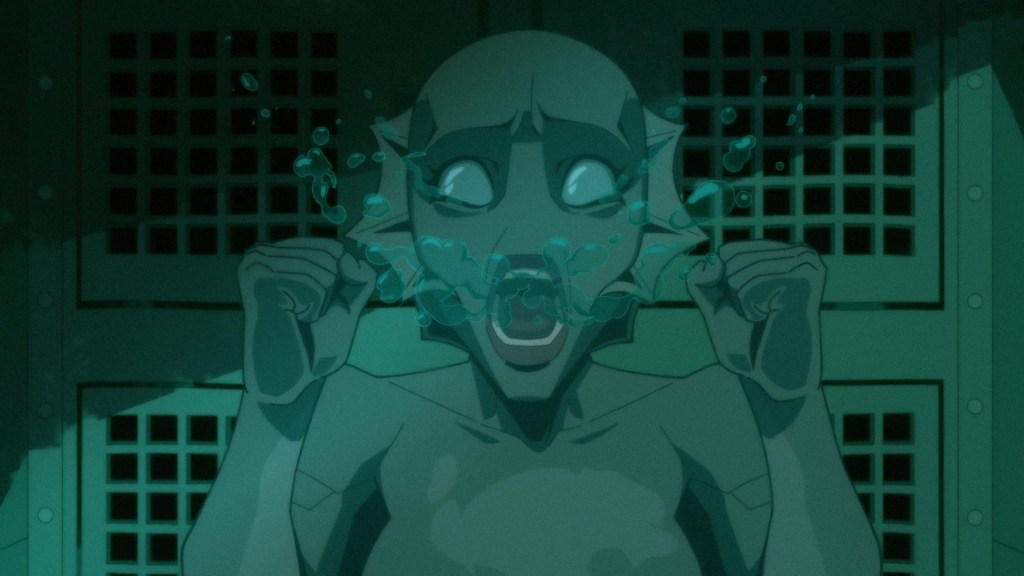The brand new DCU may only have three projects officially out in the world, but that doesn’t mean that James Gunn‘s new expansive cinematic universe isn’t already delivering amazing takes on classic comic book characters. From last year’s animated series Creature Commandos to this year’s Superman feature film and the unreal Peacemaker Season 2, the DCU is moving full steam ahead. It’s already impressive that the DCU has managed to have such a successful launch, but even more so when we consider that some of the characters they’ve brought along are even better than what came before them.
Videos by ComicBook.com
Some characters, like Batman, have only appeared in a single frame in the DCU yet, so it’s impossible to really assess his standing just yet. Others, like Superman himself and even supporting characters like Lois Lane and Lex Luthor, have had decades of interpretations, so even though what Gunn and the actors accomplished with those roles is well-received, there is still plenty of debate to be had. What’s not really up for debate are these four: the characters where the DCU saw potential for something and made it better, or found a concept that needed refining in a totally different direction.
4) Eric Frankenstein

Though the character has popped up for years across DC comics, the version of Frankenstein best known to readers is the one seen in Seven Soldiers by Grant Morrison and Doug Mahnke, who returned in The New 52 with his own solo series, Frankenstein, Agent of SHADE. The version of the character found in DC Comics is largely what one expects, a stoic, aged warrior that utilzies his supernatural standing to fight evil. He is more archetype than actual character in a lot of cases.
In the DCU, Eric Frankenstein (voiced by David Harbour in Creature Commandos) actually has a distinct personality. It’s a pretty radical reinvention as he takes not only his love for The Bride comically seriously but misreads almost every social interaction he has. In fact, the character is a distinct look at toxic masculinity traits and how they create an awful combination with immaturity. That said, his larger origin story is one that paints him as a tragic figure wth a heavily schewed look at the world. He speaks about his relationship with the Bride like a poet, but cannot overcome the fact that his “love” is not reciprocated despite decades-long fights with her. This is not only a distinct take on Frankenstein from the comics, it’s a different one from all of fiction.
3) Jimmy Olsen

Though a longstanding stapel of Superman comics and one of his biggest supporting characters, Jimmy Olsen has had a tough time across adaptations (like taking a bullet to the head without even having his name said out loud by anyone). Other versions of Superman have stuck to the tried-and true version of Olsen, an Icon of Golden Age comics who was a snappy little reporter with a distinct super friendship. This is where the version seen in James Gunn’s Superman sets itself apart with distinction.
Expertly played by Skyler Gisondo, the DCU’s Jimmy Olsen has the hallmarks of the character. He has a classic sense of style, is an ace reporter, a great friend to Clark and Lois, plus a secret romantic streak that has largely been absent from other adaptations. The biggest place where this version of Jimmy Olsen improves on everything that has come before him is in Gisondo’s performance, who deploys tremendous comic timing in every scene that he appears. That combined with his sheer presence makes you believe he’s in the movie even more than he is, meaning his mark on the DCU is a huge one.
2) Adrian Chase / Vigilante

In the pages of DC Comics, Adrian Chase and his Vigilante persona is one plagued by guilt. Though distinctly not a killer for most of his time in comics, Vigilante was largely a gun-toting comics character that went after criminals who managed to go free form technicalities. He spends a lot of time wallowing in the harm he’s caused and how wrong or right he may be at any given moment.
The version found in the DCU, however, is not only hilarious and charming, but a complete sociopath with no remorse; a combo that shouldn’t work. With Peacemaker’s arc the focal point of his TV series, Gunn knew that the world didn’t need another character good at shooting guns who suddenly started to develop a conscious. Freddie Stroma’s take on the character is one who puts on airs in every situation, whose foolish ambitions and lunatic persona are the breeding ground for jokes and parody, not a serious introspection on the alleged power of fighting crime with a gun. It’s another unique take on a larger comic book persona, but a distinct shift from the expectations in ways that have been nothing but rewarding for the DCU.
1) Nina Mazursky

In the pages of DC comics, Nina Mazursky is introduced as part of the Frankenstein, Agent of SHADE team. Though given an interesting backstory, her presence on the team is largely there to just check the box of having a Creature From the Black Lagoon analogue be on the team that already has a vampire, mummy, and werewolf.
In the DCU’s Creature Commandos however, Nina has a distinct place as a member of the team that is fully defined by a tragic origin. Nina in the comics comes to her amphibious nature on her own, making herself into the monster after creating an entire army of other monsters; but in the DCU her father makes her this way after she’s born with a unique physiology. It’s a story that makes far more sense as to the WHY someone has become an amphibious monster but also one that feeds into her personality in the series as a whole.
Nina is a kind soul, one that quickly develops friendships with her teammates even when their personalities are at odds. This development of Nina as a character leads to not only the most tragic death of the DCU so far, but one that had major ramifications because of the changes made to her. Killed by Princess Rostovic, Nina’s death is what finally gives The Bride a push toward concluding the conflict of the season. Not only did DC improve Nina’s place in the DCU with her writing but they made her legacy one that had impact in the narrative.








